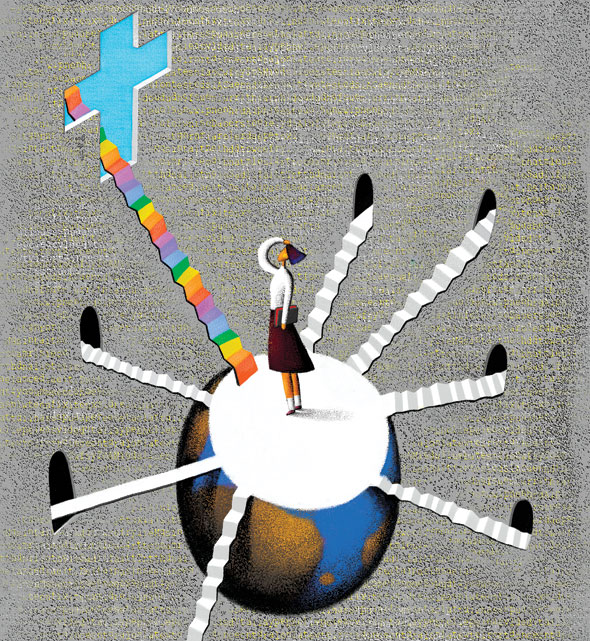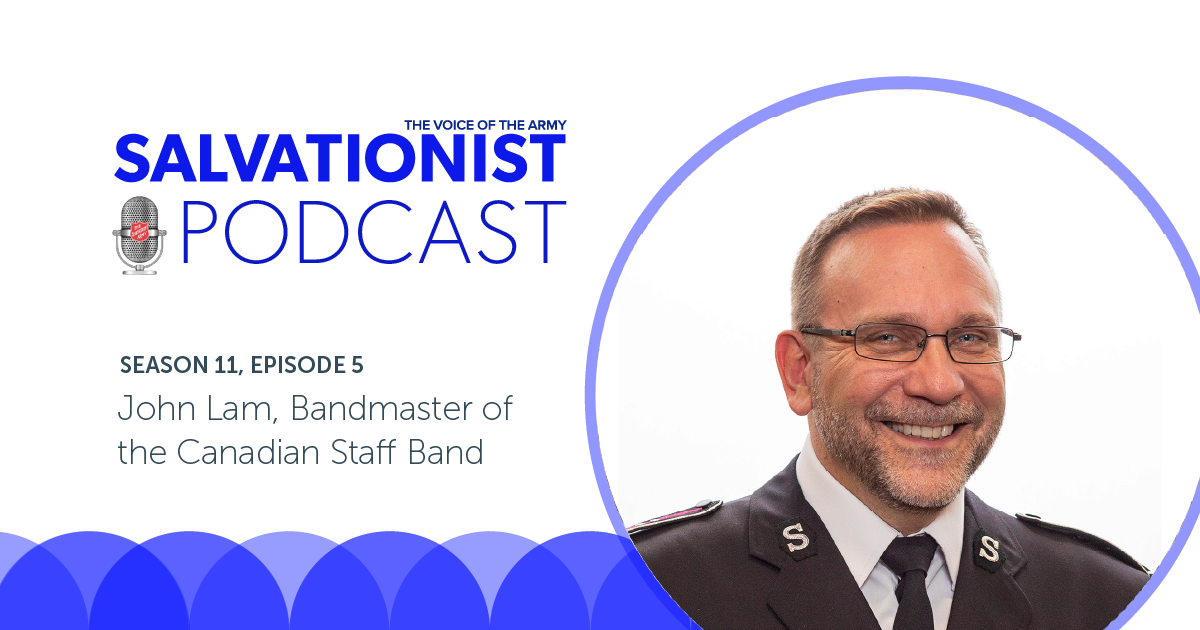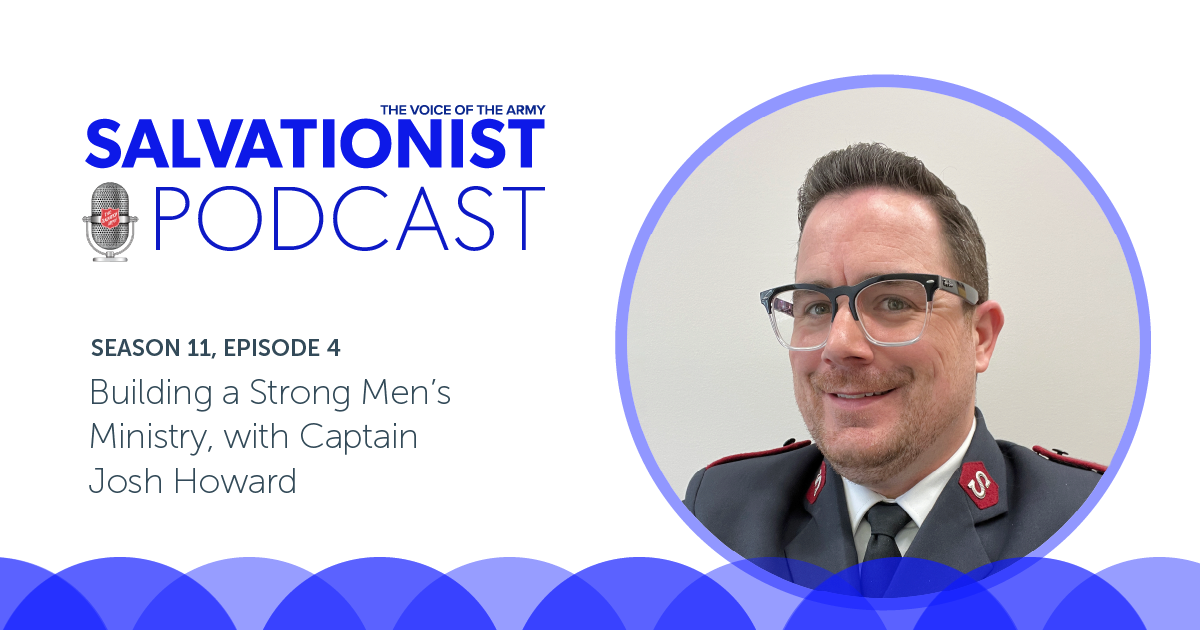
For this lone Salvationist student, it was the beginning of a troubling debate. While only the first day of the semester, it was clear where the course discussion was heading. I stared at the controversial question the professor had written on the board: “Is Jesus the only way to Heaven?”
“Why did I sign up for this course?” I muttered under my breath. My instincts were telling me to jump off this train before it even pulled out from the station. This had the potential to get ugly. After all, the very nature of the question undermined everything I believed as a lifelong Salvationist. Of course Jesus was the only way! How could anyone doubt Jesus' own claim, “I am the way and the truth and the life. No one comes to the Father except through me” (John 14:6)? He wouldn't have said it if it weren't true.
Yet in this class I was being forced to acknowledge that not everyone saw things the way that I did. Not everyone believed that there was only one official road map to the Kingdom. Could many paths lead to God? There are billions of non-Christians in the world. What will happen to them when they die? What made my claim on truth any more significant than that of my Muslim, Jewish, Hindu or Buddhist neighbours?
As it turns out, this controversy is not new. It dates back to the early days of the Church, when the early believers drafted the Nicene Creed (AD 325) and the Chalcedon Creed (AD 451). These documents articulated the uniqueness of Jesus Christ as the full and complete incarnation of God. They also solidified the Church's claim on absolute truth, that there is no salvation apart from Jesus Christ.
Secular critics argue that the Early Church retreated from the world to concentrate only on its inner life. They suggest that the Church abused its power by assuming a posture of “let us teach you” as opposed to listening to the insights and questions of other world religions. Some even maintain that the Church manufactured Jesus' claim to be the one and only Saviour of the world in an attempt at self-preservation. Regardless of its detractors, the Church remained the authoritative voice of Western society for centuries.
Today, the world is changing. We now live in a pluralistic society alongside people of various religions and belief systems. We are not the only ones with the mission of trying to put people on the right track. How are we to respond to competing claims to truth?
Do We Relinquish Our Exclusive Claims of Faith?
Ernst Troeltsch (1865-1923) stands out among modern theologians to suggest that Christians should relinquish their exclusive claim that Jesus is the only way to God and eternal life. Troeltsch was a universalist. When it comes to Heaven, he believed that everyone gets in, no matter what spiritual path they choose to travel. He wrote: “In religion, there are no absolutes, but rather God's revelation is offered to all people and to all religions. No one religion can claim to be the full and final realization of divine presence.”
Building on this perspective, Arnold J. Toynbee (1889-1975) argued for the basic sameness of all religions, believing that “Christians must sacrifice self-centred claims of superiority, purging themselves of any traditional belief that Christianity is somehow unique.” Both scholars reject Christianity's claim to superiority—a word that rankles in our current culture which is focused so much on tolerance of all peoples and perspectives.
Is there a respectful way to enter the faith dialogue, without compromising our belief that Jesus Christ holds the absolute truth? It's a fine line to walk. I would suggest that we don't have to give up the exclusivity of our beliefs, but we may need to be more strategic in how we enter the debate, making space for others to openly share their views. Even as we seek to be effective listeners, it is critical that we represent our side of the story. Keeping silent is not the answer if faithfulness to gospel truth is our conviction.
Let us rise with renewed vitality to be living testaments to that which we believe
Do We Redefine Our Faith?
Instead of letting go of our doctrinal beliefs, some Christians have argued that we should rethink or reshape them to align with other world religions. Theologian Karl Rahner (1904-1984) outlines this approach in Anonymous Christians: “All human beings can be close to God without realizing it…. There are human beings who merely think they are not Christians but who are so in the grace of God…. People come from east and west into the Kingdom of God, on roads that are registered with no official road map.”
While I'm open to hearing Rahner's perspective, I fear that his position cheapens the Christian gospel. If all human beings can be close to God without realizing it and if there are no official road maps into the Kingdom of God, then there is no clear standard for salvation and no ultimate price for redemption. People need only live according to the accepted standard of human behaviour in their cultural context.
To what point does this debate bring us? The need still remains for Christians to negotiate the complexity of what the gospel represents. What was God thinking when he decided to sacrifice his only Son for the atonement of the world? Calvary's cross seems like an extreme measure, and yet it was part of God's redemptive plan. What are we to make of the lengths divine love was willing to travel to secure your salvation and mine? If there was another way, why even bother with this daring plan? For those who subscribe to Rahner's views, these questions continue to be stumbling blocks.
Do We Reaffirm Our Faith?
What options remain? To relinquish the exclusivity of our faith is to betray the light and revelation we have received as Christian believers. To redefine our beliefs weakens the uniqueness of our faith. To reaffirm our faith in today's world risks alienating the global religious community.
In The Gospel in a Pluralist Society, theologian Lesslie Newbigin points out that the Church has been here before. Religious pluralism is not a new concept. Rather, it was the experience of early believers as they worked out what it meant to say “Jesus alone is Lord” in their own societal context.
While the debate about truth isn't new, perhaps it is meeting our society in a new way. Where we encounter diminished respect for the authority of the Church, let us rise with renewed vitality to be living testaments to that which we believe. If we hold that Christ is the only way to Heaven, then we have a responsibility to be faithful to the light we have received.
It is not the exclusivity of Christian doctrine that must be reshaped, but rather our worldview. Our calling as Salvationists is to look at the world through a new lens that recognizes how many people are searching for some form of spiritual fulfilment. Let us enter the dialogue from this perspective, even as we acknowledge that there are no limits to where the grace of God can go.
In her book Speaking of Sin, Barbara Brown Taylor writes, “Our lives are God's sign language in a sin-sick world. And God has promised us the grace we need to point the way home.”
Using the biblical road map we've received, we may discover the resources necessary to be incredible tour guides. The point is that we don't miss the opportunity to be part of the tour as it is pulling out from the station. We can't answer the question as to what will happen to those who choose not to accompany us on the journey. In this regard, we can only submit to the wisdom and mercy of God. But we can point to the ultimate joy of what we have discovered for ourselves through Jesus Christ our Lord.









I thought that this article was going to deal head-on with the issue of sharing beliefs and how to listen as well as what to say when speaking, but it seems like it's merely a history lesson with the words "we should learn from this" tacked on at the end, without explaining how or what we should learn.
I don't know how to deal with this issue. But it appears that the author of the article doesn't either. And if that's the case, why write the article at all?